Achieving and maintaining a high rank on Google is a top priority for businesses aiming to stay competitive in today’s digital landscape. With the ever-evolving search engine algorithms, keeping up-to-date with the latest trends and strategies is essential. This guide will walk you through actionable strategies to improve your Google rank in 2025, specifically tailored for businesses in New York, USA.
What Makes Google Rankings Important?
Google rankings are a reflection of how visible your website is to your target audience. When your website ranks higher:
Increased Visibility: Higher rankings mean more eyes on your website.
Enhanced Credibility: Users often trust the top results on Google.
Improved Traffic: Higher positions drive more organic traffic.
Boosted Revenue: More traffic often leads to more conversions.
Understanding Google’s Algorithm in 2025
Google’s search algorithm is constantly evolving to provide better search results for users. Here are some ey elements driving SEO success in 2025:
Core Web Vitals: Metrics that measure user experience, including loading speed, interactivity, and visual stability.
AI-Driven Search: Google’s AI, such as BERT and MUM, understands user intent better than ever.
E-A-T Principles: Expertise, Authoritativeness, and Trustworthiness remain crucial.
Mobile-First Indexing: Websites optimized for mobile devices perform better.
User Intent Matching: Content tailored to match user queries ranks higher.
Step-by-Step SEO Strategies for 2025
Conduct Comprehensive Keyword Research
Keyword research is the backbone of any successful SEO strategy. Use advanced tools like SEMrush, Ahrefs, and Google’s Keyword Planner to identify keywords that:
Have high search volume.
Are relevant to your niche.
Show low to medium competition.
Focus on LSI Keywords
Latent Semantic Indexing (LSI) keywords help Google understand your content’s context. For instance, alongside “Google rank,” include terms like “SEO strategies,” “search engine optimization,” and “ranking improvements.”
Competitor Analysis
Analyze the keywords used by your top competitors. Use tools like SpyFu to gain insights into their strategies and incorporate relevant terms into your content.
Optimize Your Website for On-Page SEO
On-page SEO involves optimizing individual pages to improve their search engine rankings. Follow these best practices:
Title Tags and Meta Descriptions
Craft compelling title tags that include your primary keyword.
Write engaging meta descriptions with a clear call to action.
Subheading Distribution
Organize your content with relevant subheadings (H2, H3) to improve readability and structure.
Image Optimization
Use descriptive file names and alt text for all images.
Compress images to improve loading times.
Internal Linking
Link to related content on your website to improve navigation and boost SEO.
URL Structure
Keep URLs short and keyword-rich, avoiding unnecessary characters and numbers.
Create High-Quality, Engaging Content
Content is king, and in 2025, it remains a significant factor for SEO success. Here’s how to create content that ranks:
Address User Intent
Ensure your content provides value and answers user queries effectively.
Incorporate NLP Terms
Natural Language Processing (NLP) terms align your content with the way users phrase queries. For example, include terms like “how to improve website ranking” and “SEO tips for 2025.”
Content-Length
Long-form content (2,500+ words) tends to perform better as it offers in-depth insights.
Add Multimedia
Incorporate videos, infographics, and images to enhance user engagement.
Regular Updates
Refresh old content to keep it relevant and up-to-date.
Prioritize Technical SEO
Technical SEO ensures your website is easily crawlable and indexable by search engines. Key areas to focus on include:
Site Speed Optimization
Use tools like Google PageSpeed Insights to identify areas for improvement.
Implement caching and content delivery networks (CDNs).
Mobile Optimization
Ensure your website is mobile-friendly and responsive on all devices.
XML Sitemaps and Robots.txt
Submit an updated sitemap to Google Search Console and ensure your robots.txt file doesn’t block essential pages.
Structured Data
Add schema markup to help search engines understand your content better and improve rich snippet eligibility.
Build High-Quality Backlinks
Backlinks are still one of the strongest ranking factors. Focus on earning links from authoritative and relevant websites.
Guest Blogging
Publish guest posts on reputable blogs in your niche.
Broken Link Building
Find broken links on other websites and offer your content as a replacement.
Content Promotion
Promote your content on social media and forums to attract natural backlinks.
Leverage Local SEO
If your target audience is in New York, USA, local SEO is crucial. Optimize your website to appear in local search results:
Google My Business (GMB)
Claim and verify your GMB profile.
Ensure your business information is accurate and complete.
Local Keywords
Incorporate keywords like “SEO services in New York” and “how to improve Google rank in NYC.”
Local Citations
List your business in local directories like Yelp and Yellow Pages.
Customer Reviews
Encourage satisfied customers to leave positive reviews on Google and other platforms.
Harness the Power of Social Media
Social signals indirectly influence your Google rankings. Here’s how to use social media effectively:
Share your content on platforms like LinkedIn, Twitter, and Facebook.
Engage with your audience through comments and direct messages.
Use hashtags to increase content discoverability.
Monitor and Analyze Performance
Use analytics tools to track your SEO efforts and identify areas for improvement:
Google Analytics: Monitor traffic, user behavior, and conversions.
Google Search Console: Track keyword rankings and indexing issues.
SEMrush/Ahrefs: Analyze backlinks and competitors.
FAQ For How to Improve Your Google Rank with SEO in 2025
Q. What are the best tools for keyword research in 2025?
A. SEMrush, Ahrefs, and Google Keyword Planner remain top choices for identifying high-performing keywords.
Q. How often should I update my content?
A. Aim to review and update your content every 6-12 months to keep it relevant.
Q. What is E-A-T, and why is it important?
A. E-A-T stands for Expertise, Authoritativeness, and Trustworthiness, crucial for ranking in Google’s algorithm.
Q. How can I improve site speed?
A. Optimize images, use a CDN, and enable browser caching.
Q. What are Core Web Vitals?
A. Core Web Vitals are metrics that measure page loading, interactivity, and visual stability.
Q. How do backlinks improve SEO?
A. Backlinks signal to Google that your content is valuable and authoritative.
Q. What is schema markup?
A. Schema markup is a form of microdata that helps search engines understand your content.
Q. Is local SEO necessary for all businesses?
A. Local SEO is essential if you target customers in specific geographic locations.
Q. What role does AI play in SEO?
A. AI enhances search engines’ ability to understand user intent and deliver relevant results.
Q. How can social media impact SEO?
A. Social media drives traffic to your website and can lead to natural backlinks.
Final Thoughts For How to Improve Your Google Rank with SEO in 2025
By implementing these strategies, your website can achieve higher rankings on Google in 2025. Tailor these tactics to your specific needs and keep monitoring your performance for continuous improvement



